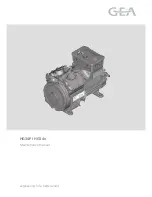
USER MANUAL
3
- If operating a power tool in a damp location is unavoidable, use a
residual current device (RCD) protected supply. Use of an RCD
reduces the risk of electric shock.
- Use of power supply via a RCD with a rated residual current of 30mA
or less is always recommended.
.
PERSONAL SAFETY
- Stay alert, watch what you are doing and use common sense when
operating a power tool. Don’t use a power tool while you are tired
or under the influence of drugs, alcohol or medication. A moment of
inattention while operating power tools may result in serious personal
injury.
- Use personal protective equipment. Always wear eye protection.
Protective equipment such as dust mask, non-skid safety shoes,
hard hat, or hearing protection used for appropriate conditions will
reduce personal injuries.
- Prevent unintentional starting. Ensure the switch is in the off-position
before connecting to power source and/or battery pack, picking up or
carrying the tool. Carrying power tools with your finger on the switch or
energizing power tools that have the switch on invites accidents.
- Remove any adjusting key or wrench before turning the power tool on.
A wrench or a key left attached to a rotating part of the power tool may
result in personal injury.
- Don’t overreach. Keep proper footing and balance at all times. This
enables better control of the power tool in unexpected situations.
- Dress properly. Don’t wear loose clothing or jewelry. Keep your hair,
clothing, and gloves away from moving parts. Loose cloths, jewelry or
long hair can be caught in moving parts.
- If devices are provided for connection of dust extraction and collection
facilities, ensure these are connected and properly used. Use of dust
collection can reduce dust-related hazards.





































